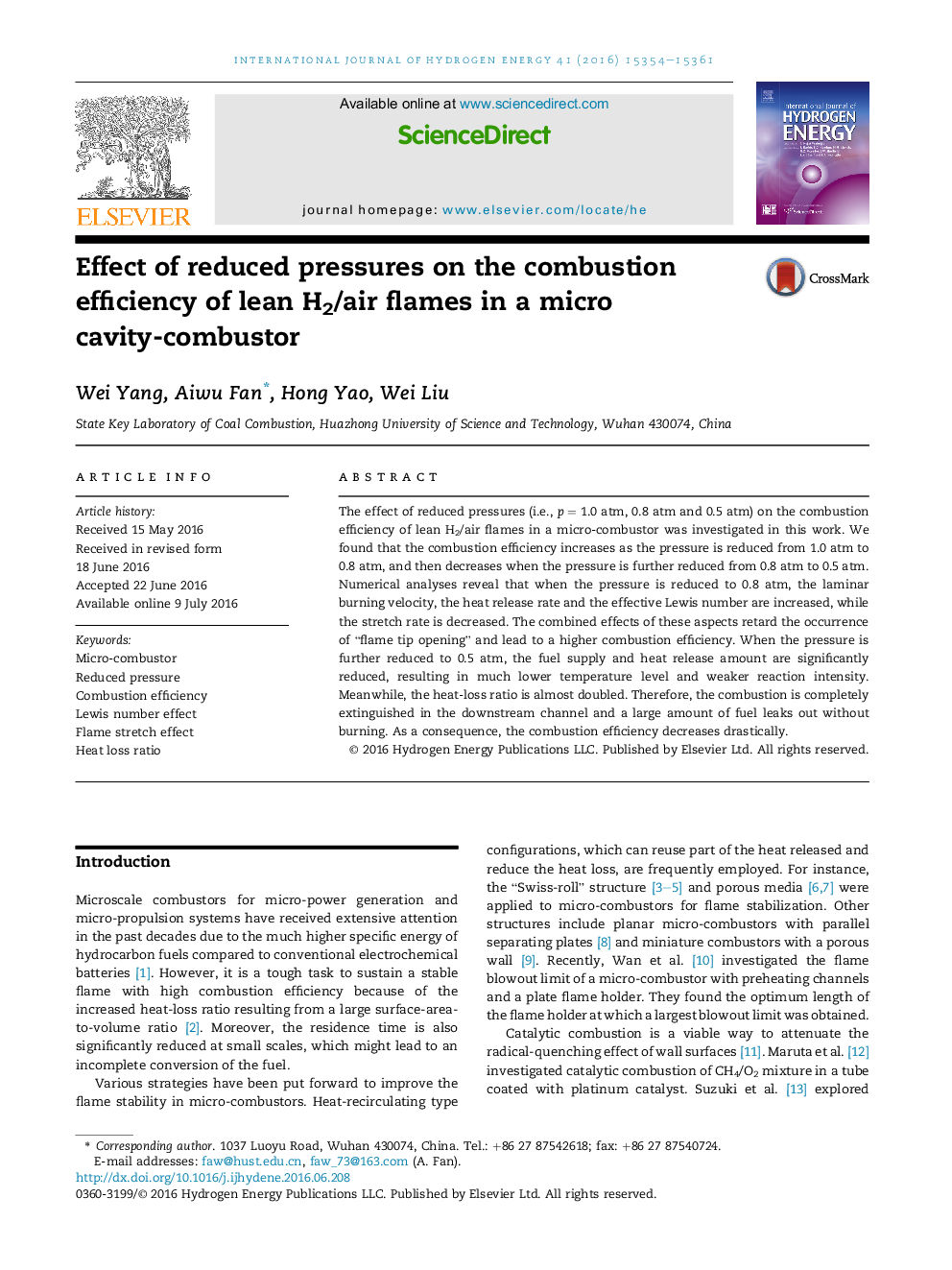| کد مقاله | کد نشریه | سال انتشار | مقاله انگلیسی | نسخه تمام متن |
|---|---|---|---|---|
| 1270414 | 1497391 | 2016 | 8 صفحه PDF | دانلود رایگان |

• Combustion efficiency of micro H2/air flames under reduced pressures was studied.
• Combustion efficiency increases as the pressure is decreased from 1.0 to 0.8 atm.
• Combustion efficiency drops when the pressure is decreased from 0.8 to 0.5 atm.
• The underlying mechanisms are flame tip opening phenomenon and heat loss ratio.
The effect of reduced pressures (i.e., p = 1.0 atm, 0.8 atm and 0.5 atm) on the combustion efficiency of lean H2/air flames in a micro-combustor was investigated in this work. We found that the combustion efficiency increases as the pressure is reduced from 1.0 atm to 0.8 atm, and then decreases when the pressure is further reduced from 0.8 atm to 0.5 atm. Numerical analyses reveal that when the pressure is reduced to 0.8 atm, the laminar burning velocity, the heat release rate and the effective Lewis number are increased, while the stretch rate is decreased. The combined effects of these aspects retard the occurrence of “flame tip opening” and lead to a higher combustion efficiency. When the pressure is further reduced to 0.5 atm, the fuel supply and heat release amount are significantly reduced, resulting in much lower temperature level and weaker reaction intensity. Meanwhile, the heat-loss ratio is almost doubled. Therefore, the combustion is completely extinguished in the downstream channel and a large amount of fuel leaks out without burning. As a consequence, the combustion efficiency decreases drastically.
Journal: International Journal of Hydrogen Energy - Volume 41, Issue 34, 14 September 2016, Pages 15354–15361